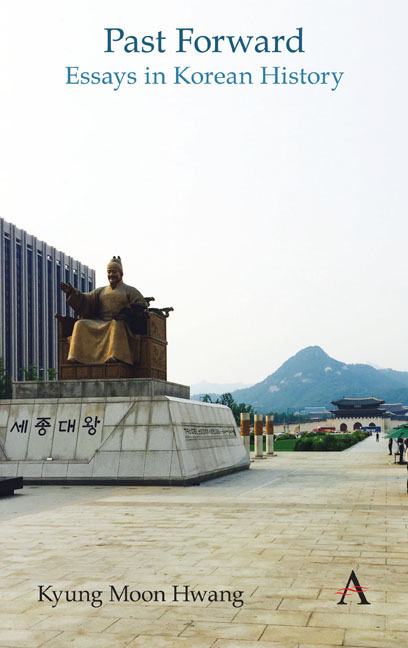Book contents
- Frontmatter
- Contents
- List of Figures
- Foreword
- Chronologies of Korean History
- Themes
- Acknowledgments
- Note on Romanization and Spelling
- Part I Circulating History
- Part II Durable Traditions
- Part III Ancient Remains
- Part IV Dynastic Depths
- Part V Modern Origins
- Part VI Challenges of Nationhood
- 30 Korea's Past in Light of Brexit
- 31 Openness and Exclusion
- 32 The North Korean View of History
- 33 Another Way to View National Division
- 34 The First National Assembly Elections
- 35 Who Started the Korean War?
- 36 Textbooks and Competing Nationalist Histories
- 37 The Complexities of Memorial Day
- 38 Adoption's Spotlight on Korean History
- 39 Questioning Monuments
- 40 Taking Ownership of the Past
- Part VII History Makers
- Part VIII External Presences
- Part IX Trials of Modernization
- Part X Gripped by the Past
- Index
36 - Textbooks and Competing Nationalist Histories
from Part VI - Challenges of Nationhood
- Frontmatter
- Contents
- List of Figures
- Foreword
- Chronologies of Korean History
- Themes
- Acknowledgments
- Note on Romanization and Spelling
- Part I Circulating History
- Part II Durable Traditions
- Part III Ancient Remains
- Part IV Dynastic Depths
- Part V Modern Origins
- Part VI Challenges of Nationhood
- 30 Korea's Past in Light of Brexit
- 31 Openness and Exclusion
- 32 The North Korean View of History
- 33 Another Way to View National Division
- 34 The First National Assembly Elections
- 35 Who Started the Korean War?
- 36 Textbooks and Competing Nationalist Histories
- 37 The Complexities of Memorial Day
- 38 Adoption's Spotlight on Korean History
- 39 Questioning Monuments
- 40 Taking Ownership of the Past
- Part VII History Makers
- Part VIII External Presences
- Part IX Trials of Modernization
- Part X Gripped by the Past
- Index
Summary
The bitter disputes in 2015 over whether the South Korean government should (re-)nationalize secondary history textbooks reflected stark ideological differences in historical understanding. But fundamentally, it was a struggle between two forms of Korean nationalism, and in turn between opposing visions of political legitimacy and modern identity.
The progressive (or “leftist”) view is grounded in an ethnic Korean nationalism that sees modern history, dating back over a hundred years, as an upward path toward achieving an independent and united collectivity. Beginning in the late nineteenth century, Koreans undertook this march toward freedom and advancement but were quickly overcome by external forces, particularly Japanese imperialism, which forced Korea into a protectorate in 1905 and colonized the country in 1910. Ever since that period, Koreans have struggled not only to regain their autonomy but to create a more just society without political and economic exploitation. A return to the old days of a dynastic state and a hereditary social order was not sought, in other words; rather, a more enlightened, equalized and fair collectivity that freed itself from foreign domination would be the goal of the country's modern course of history.
From this view, then, what actually took place upon Korea's liberation in 1945, after thirty-five years of Japanese colonial rule, was indeed tragic. The superpower occupations divided the country and, in the south, those Koreans who had benefited from Japanese domination maintained their privileged social and economic standing. The period from 1945 to 1953, beginning with liberation and ending with the Korean War that solidified national division, thus represented another lost opportunity to achieve the nation's modern historical purpose.
Not to be defeated, however, the people continued thereafter to wage a struggle against oppressive forces: the regimes of Syngman Rhee (1948–1960), Park Chung-Hee (1961–1979) and Chun Doo-hwan (1980–1987), each of which began and sustained itself through violent, illegal and unjust means; the Cold War system, headed by the United States, which nurtured those dictatorships by prolonging national division and socioeconomic injustice; and the social and economic elite established through traitorous collusion with Japanese colonialism, American geopolitical interests and Korean strongmen.
- Type
- Chapter
- Information
- Past ForwardEssays in Korean History, pp. 104 - 106Publisher: Anthem PressPrint publication year: 2019



